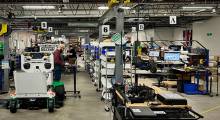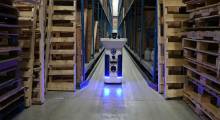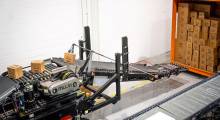Any lingering doubts that the government wholeheartedly backs the development of autonomous vehicles was put to rest this week with the official announcement of a set of policies that touched on guidelines for vehicle performance as well as safety concerns.
Jeffrey Zients, director of the National Economic Council, and Anthony Foxx, secretary of the U.S. Department of Transportation, released the 116-page Federal Automated Vehicles Policy along with a 15-point safety standard intended to encourage and aid in the design and development of autonomous vehicles. The agencies also urged manufacturers of the new generation of driverless vehicles to be transparent in how they validate their technology for safety and performance and how they plan to share data collected by the new cars. At the same time, the mandate called on the states to come up with a uniform set of policies.
The 15-point federal checklist, intended to serve as a benchmark for all autonomous vehicles to meet before they go to market, hits on a variety of safety expectations. Among them: Sharing driving data with regulators so they can do root cause analysis on crashes or system breakdowns; the ability for vehicles to respond safely in the event of crashes or system malfunctions; and the need for safeguards to ensure security and prevent online attacks. Also outlined in the checklist was the requirement for a range of validation and testing procedures, including simulation, test track and on-road testing; human-machine interfaces; crashworthiness; and ethical considerations related to programming decisions governing how a driverless car might operate in a particular situation.
Rather than a specific set of rules governing autonomous vehicle development, experts said the policy proposals were vague enough to leave the door open for automakers and technology startups to innovate as they see fit as long as they pay close attention to safety.
“This moves the needle in the right direction,” says Nidhi Kalra, senior information scientist and director of the Center for Decision Making Under Uncertainty for Rand. “The guidelines are more about setting out a process for getting the technology on the road rather than setting out the specific requirements. They also help create a framework for states to have unified or conforming requirements because if every state had different requirements for autonomous vehicles, that would be a show stopper for the technology.”
Even without a lot of specific details, the new Federal policy document was generally viewed as an endorsement by government to push forward on autonomous vehicle design. Citing statistics such as the death of 35,092 people on U.S. roads in 2015 with 94% of crashes tied to human choice or error, the policy document emphasized the important of autonomous vehicle technology as a safer option and a means for dramatically reducing crashes.
There’s definitely a lot of work ahead, particularly on the testing and validation front. A Tesla driver, using the car’s Autopilot semi-autonomous driving system, was involved in a fatal high speed crash this summer, and there have been several crashes with Google’s self-driving cars, although no one was hurt. (Read DE's previous coverage, Driving While Blind: The Challenges of Human-Robot Interaction here.)
By the looks at this latest Federal mandate, the drawing board on autonomous vehicle design is certainly open for business.
Watch this video to see how autonomous vehicles work.
About the Author
Follow Robotics 24/7 on Linkedin
Article topics
Email Sign Up

















